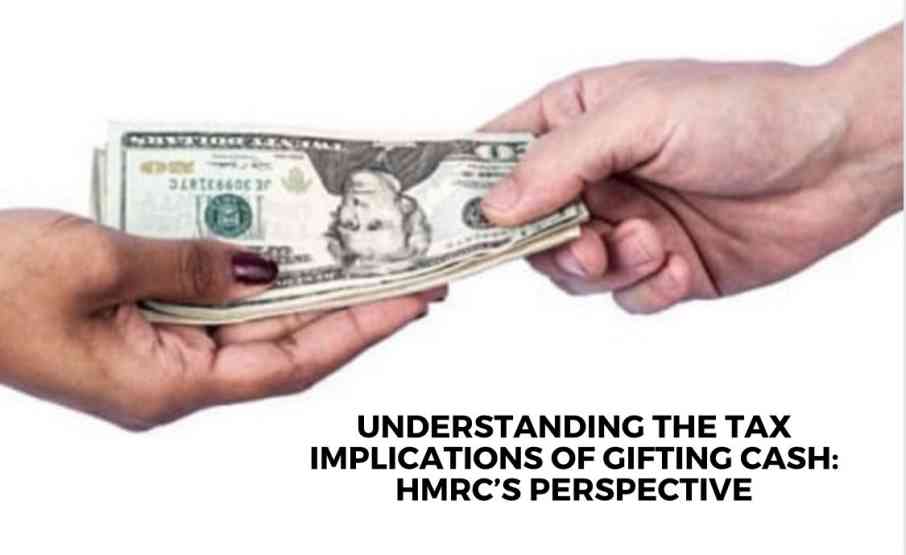Understanding the Tax Implications of Gifting Cash: HMRC's Perspective
- Authors
-
-

- Name
- Patrick Maflin
-

In the realm of gift-giving, cash often stands out as a convenient and versatile option. Whether it's for birthdays, weddings, or other special occasions, the allure of cash presents itself as a simple solution. However, amidst the joy of giving and receiving, it's crucial to consider the tax implications, especially concerning HM Revenue and Customs (HMRC) in the UK.
The Basics of Gifting Cash
When you gift cash to family, friends, or even acquaintances, it's generally viewed as a straightforward gesture of generosity. Unlike some gifts, cash doesn't come with the complexities of sizing or colour preferences. But when it comes to tax matters, simplicity can give way to intricacies.
HMRC's Stance
The HMRC keeps a watchful eye on financial transactions, including gifts. Their primary concern is to ensure that individuals are paying the correct amount of tax based on their financial activities. When it comes to gifting cash, HMRC has specific guidelines in place.
Exemptions and Considerations
Small Gifts: In addition to the annual exemption, you can make small gifts up to £250 to as many individuals as you like without them being counted towards your annual exemption or adding to the value of any larger gift you give to the same person in that tax year.
Wedding Gifts: There are specific rules regarding cash gifts for weddings. If you're giving cash as a wedding gift, the amount can vary depending on your relationship with the couple. As of my last update, gifts up to £1,000 for a child or £2,500 for a grandchild or great-grandchild are exempt.
Regular Gifts: If you're making regular gifts out of your income, these can also be exempt from inheritance tax. These gifts must be part of your normal expenditure, and they shouldn't affect your standard of living.
Potential Tax Liabilities
While most cash gifts fall within the exemptions and allowances mentioned above, there are scenarios where tax liabilities might arise:
Exceeding Allowances: If your total gifts in a tax year exceed the annual exemption and other allowances, you might be liable to pay inheritance tax on the excess amount.
Gifts with Reservation of Benefit: If you gift cash or assets but continue to derive benefit from them, such as living in a property you've given away, HMRC might treat the gift as if it hasn't been made for inheritance tax purposes.
Conclusion
In summary, gifting cash is generally not taxable by HMRC, provided it falls within the annual exemption and other specified allowances. However, it's essential to be mindful of the rules and thresholds to avoid inadvertently triggering tax liabilities. If you're unsure about the tax implications of your gifts, it's advisable to seek professional advice to ensure compliance with HMRC regulations.
Remember, the act of giving should be a joyous occasion, and with careful consideration of the tax implications, you can ensure that your generosity remains a positive experience for both you and the recipient.


